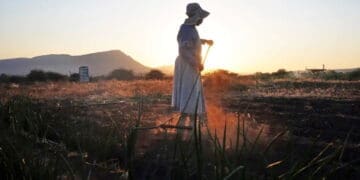A recent four-day financial literacy training course facilitated by Intshayobunye Community Development in Cato Ridge, KwaZulu-Natal, is already making a difference in the lives of local entrepreneurs, equipping them with tools to manage their finances better and grow their businesses.
The training was developed to address the pressing issue of debt and poor financial management in local communities.
With many people trapped in cycles of borrowing and repaying loans, the programme aims to change lives, starting with knowledge.
“We have always believed that financial literacy is key to breaking the cycle of poverty,” said Ntokozo Mabaso, who is the programme facilitator.
“We have seen how people, no matter how little they earn, can change their circumstances if they know how to manage their income effectively. That is why we offer this training for free.”
The sessions featured modules such as Budgeting Basics, Money Modular and Money Fo Sho. They covered practical topics like needs versus wants, saving strategies, avoiding scams 0and fraud, and understanding the National Credit Regulator and the credit bureau. The SA Revenue Service and insurance options were also demystified.
“These are everyday financial struggles our communities face,” Mabaso explained.
“By using local trainers who speak the language and understand the local context, we ensure the information is not only accessible, but immediately useful.”
For local small business owners, the experience was more than educational, it was transformational.
Thandekile Ntombela, who runs a fast-food business, shared how the saving and investing module helped her grasp key financial concepts.
“It gave me peace of mind to understand how to manage risks and plan better. I have never received any financial training before, but now I feel confident in setting financial goals and developing a business plan,” she said.
The use of local facilitators was particularly impactful.
“They made the content easy to understand and answered our questions in a relatable way. Plus, they connected us with valuable resources and networking opportunities,” Ntombela said.
Some participants have already started applying lessons from the training, particularly around savings methods and separating personal and business finances.
The facilitators say this is only the beginning.
“As long as people are still struggling with financial issues, we will be there to help, free of charge,” said Mabaso.
She said they were planning on reaching more communities and revisit those they had trained to offer follow-up support.
































































